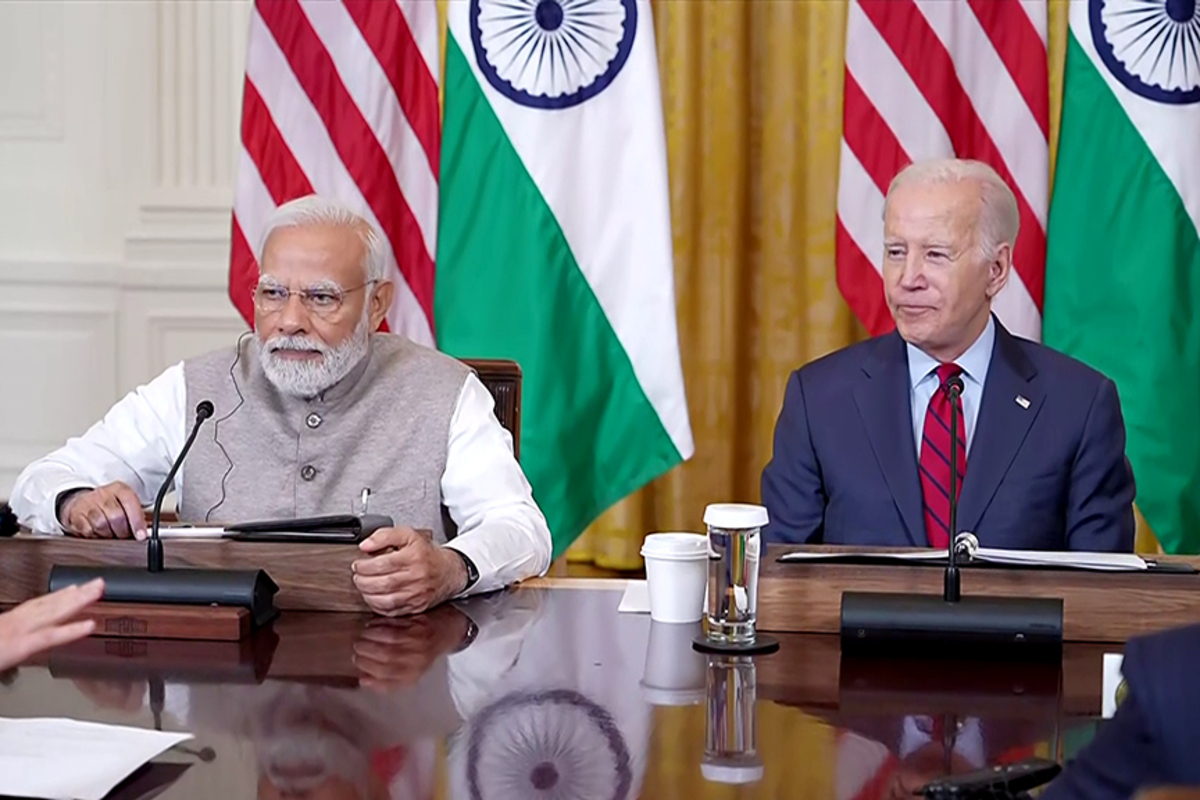Trump vows to bring peace to West Asia if re-elected
Former US President Donald Trump on Friday pledged to bring peace to West Asia if re-elected to the White House and that he will stop the spread of anti-Semitism in America.
In recent discussions between India and the United States, the topic of alleged assassination plots against separatist activists has emerged as a point of contention.

Prime Minister Narendra Modi and United States President Joe Biden (ANI Photo)
In recent discussions between India and the United States, the topic of alleged assassination plots against separatist activists has emerged as a point of contention. While India denies any involvement of state actors, the gravity of these allegations cannot be overlooked. However, in navigating this delicate situation, it is imperative to tread carefully to avoid straining bilateral relations. The backdrop against which these allegations unfold is the longstanding issue of separatism, with some factions still advocating for Khalistan. While the movement has largely died within India, its echoes persist on foreign soil, particularly in the United States and Canada.
The recent allegations of assassination plots against separatists, allegedly linked to Indian state actors, highlight the complexity of addressing such transnational challenges. In light of these developments, there is pressing need for constructive dialogue and proactive measures to prevent the escalation of tensions between India and its international partners. One avenue for addressing these concerns is through the establishment of legally enforceable bilateral treaties between India, the United States, and Canada. Such treaties could encompass provisions that prohibit the harbouring or support of separatist activities aimed at destabilising India’s territorial integrity. Additionally, they could outline mechanisms for cooperation in investigating and prosecuting individuals involved in such activities under the jurisdiction of the respective countries’ legal systems.
By formalising these commitments through bilateral agreements, India, the United States and Canada can demonstrate their collective resolve to uphold the principles of sovereignty, security, and mutual respect. Moreover, such treaties would serve as a safeguard against allegations targeting India resurfacing. These strain diplomatic relations and undermine trust between nations. Furthermore, the establishment of robust diplomatic channels for communication and coordination would facilitate the swift resolution of any emerging issues. Through sustained dialogue and cooperation, India and its international partners can address shared concerns while fostering a climate of trust and mutual understanding. Amid the complexities of international relations, it is essential to recognise the shared commitment to upholding sovereignty and territorial integrity. As India navigates its relationship with North American countries, it must remain steadfast in its adherence to the rule of law and respect for sovereignty while these countries must be treaty bound to respect India’s territorial integrity. By fostering a climate of transparency and cooperation, all three countries can work together to address the underlying problem of separatist movements and promote dialogue and reconciliation between them. This commitment to constructive engagement is crucial in charting a path forward. The recent allegations surrounding assassination plots against separatists underscore the need for proactive measures to prevent the escalation of tensions and uphold the principles of justice and accountability. By pursuing legally enforceable instruments, India, the United States, and Canada can mitigate the risk of future incidents and strengthen their cooperation in addressing transnational challenges. Through constructive dialogue and collaboration, they can chart a path towards a more stable and secure future for all.
Advertisement
Advertisement